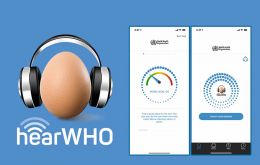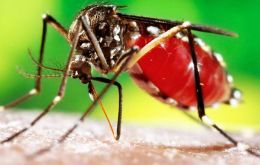MercoPress. South Atlantic News Agency
Tag: World Health Organization (WHO)
-
Tuesday, March 12th 2019 - 08:14 UTC
FAO, OIE, and WHO launch One Health approach guide to addressing zoonotic diseases

Zoonotic diseases continue to be a threat to global health, causing millions of deaths and economic losses every year. To support countries to control these diseases, the Tripartite organizations (FAO, OIE and WHO) launched a guide entitled ‘Taking a Multisectoral, One Health Approach: A Tripartite Guide to Addressing Zoonotic Diseases in Countries’.
-
Monday, March 4th 2019 - 08:39 UTC
A mobile free application “HearWHO”, to help with hearing loss

On the annual World Hearing Day (3 March), the World Health Organization (WHO) has launched “hearWHO”, a free application for mobile devices which allows people to check their hearing regularly and intervene early in case of hearing loss. The app is targeted at those who are at risk of hearing loss or who already experience some of the symptoms related to hearing loss.
-
Saturday, March 2nd 2019 - 04:52 UTC
UNICEF warns of global spike of measles; includes Brazil and Venezuela

Ninety-eight countries reported more cases of measles in 2018 compared with 2017, and the world body warned that conflict, complacency and the growing anti-vaccine movement threatened to undo decades of work to tame the disease.
-
Friday, February 15th 2019 - 10:43 UTC
Yellow fever warning for travelers to Brazil

A recent disease outbreak news from the World Health Organization highlights that in Brazil it is currently the seasonal period for yellow fever and that further transmission of the disease is expected in the coming months based on seasonal patterns.
-
Wednesday, February 13th 2019 - 08:48 UTC
New WHO-ITU standard aims to prevent hearing loss among 1.1 billion young people

Nearly 50% of people aged 12-35 years – or 1.1 billion young people – are at risk of hearing loss due to prolonged and excessive exposure to loud sounds, including music they listen to through personal audio devices.
-
Saturday, February 9th 2019 - 06:56 UTC
Measles 2017/18 outbreak in Europe, the highest in a decade

The number of recorded measles cases in Europe more than tripled between 2017 and 2018, marking the highest it’s been in a decade, the World Health Organization said. According to newly released data from the WHO, in 2018, more than 82,000 people were infected with the disease and 72 people died in Europe. In 2017, there were more than 25,000 measles cases in Europe and 42 deaths.
-
Friday, January 25th 2019 - 10:07 UTC
Hantavirus outbreak in Argentine Patagonia: WHO news alert

At least eleven people have died in Argentina after becoming infected with hantavirus, a disease carried by rats and other rodents, according to a news alert from the World Health Organization (WHO).
-
Friday, January 18th 2019 - 09:00 UTC
WHO statement on reports of alleged misconduct

World Health Organization (WHO) is aware of a news story published today about allegations of misconduct in the organization. The allegations are being investigated according to WHO’s established procedures, having been referred to WHO’s Office of Internal Oversight Services by the Director-General, Dr Tedros Adhanom Ghebreyesus.
-
Wednesday, January 16th 2019 - 08:54 UTC
Air pollution, the greatest environmental risks to health says WHO

Nine out of ten people breathe polluted air every day. In 2019, air pollution is considered by the World Health Organization, WHO, as the greatest environmental risk to health.
-
Saturday, December 15th 2018 - 08:42 UTC
WHO expert panel to develop global standards of human gene editing

WHO is establishing a global multi-disciplinary expert panel to examine the scientific, ethical, social and legal challenges associated with human gene editing (both somatic and germ cell).
